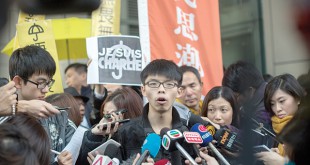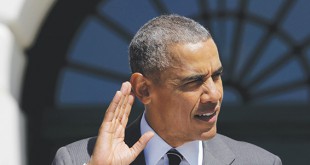Now that Joshua Wong, former student leader of Scholarism and one of the forces behind the Occupy Central Movement, has started a political party, it may be a good time to look back on what initiated this newest phase of Hong Kong’s politics: the Umbrella Movement. One imagines that Joshua Wong, Chan Ho-Tin of the Hong Kong National Party, ...
Read More »Opinion
China’s future may be sleepier than you think
The debate over how China’s economy might evolve over the next decade generally breaks down into two opposing cases. Bulls are confident that Chinese leaders will make the hard reforms needed to clean up local government debt, reform state companies, open more markets to private-sector competition and liberalize the financial sector. This should enable China to achieve another 10-15 ...
Read More »Brazil’s economy needs a saviour
Brazilian business leaders and the opposition count on looming impeachment of embattling President Dilma Rousseff, with hope to bail out the country from a deep recession to revive the sagging economy. The economic woes Brazil is experiencing and charges against Rousseff to have illegally manipulated public accounts in order to conceal a budget deficit during an election year, have ...
Read More »Watch the budget deficit, not the debt
Narayana Kocherlakota I’m often asked: What level of government debt can the U.S. sustain? The answer is that it can handle a lot more. What’s much more important is its longer-term ability to reduce the federal budget deficit — and eventually run a surplus. Before I explain, let’s define some terms. Debt refers to the value of all securities ...
Read More »The real accomplishments of G7 foreign ministers meeting
The G7 meeting held in Hiroshima last weekend marks a major diplomatic accomplishment for Japan. In addition to their Joint Communique, appropriate to the location of the meeting, the G7 foreign ministers adopted the Hiroshima Declaration on Nuclear Non-Proliferation and Disarmament following the meeting. Two additional statements–one on maritime security and the other on general non-proliferation and disarmament—were also ...
Read More »Seoul’s economic diplomacy in Mexico
After attending the 2016 Nuclear Security Summit on April 1 in Washington D.C., South Korean President Park Geun-hye and Mexican President Enrique Peña Nieto headed down to Mexico City to hold their second bilateral summit, albeit the first one hosted by one of the two countries. Before that, Park and Peña Nieto had met at the sidelines of the ...
Read More »What causes housing in USA to be too expensive
The U.S. has two big housing affordability problems. They’re related — and solving the first would go some way toward solving the second. But they’re not the same, and it’s important to understand that. The first problem is that some coastal metropolitan areas in the U.S. are generating lots of good jobs but aren’t building enough housing to keep ...
Read More »Obama is right to urge Britons to stay in EU
This week, U.S. President Barack Obama will dive into a nest of vipers as venomous as anything Republicans can offer: Britain’s debate over whether to leave the European Union. As far as campaigners for “Brexit†are concerned, he is a most unwelcome guest. Yet Obama is right to speak up. The U.S. has an interest in Britain remaining in the ...
Read More »Innovation, research key to economic growth
Repeated calls of International Monetary Fund (IMF) for all countries to support research and development (R&D) to promote innovation that could help avert slowing growth in the global economy, are essential and badly needed if the world wants to avoid the current economic downturn. While urging for structural reforms, Fund’s operational efforts should be geared towards countries’ shared priorities. ...
Read More »IMF projects another bad year for Central Asian economies
Catherine Putz SPECIAL TO EMIRATES BUSINESS The International Monetary Fund released its world economic outlook recently, and the news isn’t good for Central Asia. According to the IMF, recovery will be put off until at least 2017, for reasons frequent readers will find familiar: the Russian recession and low oil prices. “The economic outlook for the Commonwealth of Independent ...
Read More » The Gulf Time Newspaper One of the finest business newspapers in the UAE brought to you by our professional writers and editors.
The Gulf Time Newspaper One of the finest business newspapers in the UAE brought to you by our professional writers and editors.



